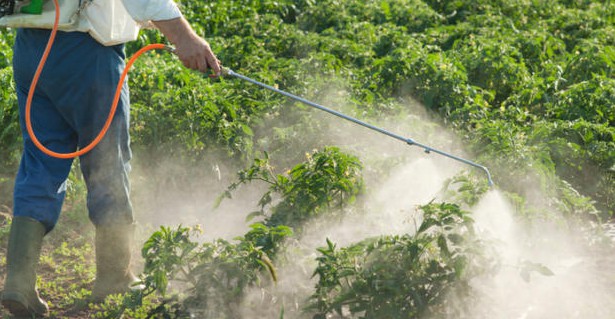
Two independent United Nations human rights experts on Monday called for an immediate worldwide phase-out of the use of highly hazardous pesticides that are inflicting significant damage on human health and the environment.
“Workers, children and others at risk continue to suffer severe impacts from hazardous pesticides,” Baskut Tuncak, the UN Special Rapporteur on human rights and hazardous substance and waste, said in a news release. “Those living in danger cannot wait several years for the next opportunity. It is imperative that States take collective action now.”
The call for the phase-out by Tuncak and fellow human rights expert Hilal Elver, the Special Rapporteur on the right to food, comes as UN Member States, businesses and other parties from around the world gather in Geneva, Switzerland, for the fourth meeting of the International Conference on Chemicals Management. The week-long gathering is the last of its kind before 2020, the year by which States pledged to achieve sound management of chemicals following the 2002 Earth Summit.
Tuncak noted that, since the 2002 Earth Summit, coordinated global action to reduce highly hazardous pesticide use has not materialized. “Risks are particularly grave in developing countries, many of who import these highly hazardous pesticides despite having inadequate systems to reduce risks,” he said.
“There are still a significant proportion of pesticides being used around the world which can be considered as highly hazardous,” he warned, “despite international pesticide experts’ claim that there are almost always safer alternatives to highly hazardous pesticides.”
Criteria developed by the UN Food and Agriculture Organization (FAO) and the World Health Organization (WHO) define highly hazardous pesticides as those with high acute toxicity, with established chronic toxic effects including the ability to cause cancer even at very low exposure levels, or which are very persistent in the environment or in organisms.
Earlier this year, the World Health Organization concluded an investigation of the chemicals contained in Roundup, one of the world’s most popular weed-killers, and found that the active ingredient (glyphosate) is a “probable carcinogen.” Glyphosate caused DNA and chromosomal damage in mammals, and in human and animal cells studied in laboratories, WHO said, and studies of workers who were exposed to the chemical in the U.S., Canada, and Sweden found increased risks for non-Hodgkin lymphoma.
Employed in more than 750 herbicide products, glyphosate is usually used on crops, including corn and soybeans, that are genetically modified to survive it. The herbicide has been detected in food water, and in the air after it has been sprayed. Glyphosate was originally used as a descaling agent to clean out mineral deposits from pipes because of its ability to avidly bind to heavy metals. The chemical bonds to arsenic, cadmium and other heavy metals found in groundwater, making it particularly persistent in the environment.
“Often, the residues of these hazardous pesticides are found in the food that we consume and this impedes individual’s right to access safe healthy food,” Elver said. “The exposure is particularly serious for farmworkers and their families. Children are exposed to highly hazardous pesticides through their mother’s milk.”
Of particular concern are the effects of pesticide exposure during pregnancy, as the developing fetus is more vulnerable to these chemicals than adults. Some research even suggests that fetal exposure to several common types of pesticides — including organophosphates, pyrethroids, and carbamates — may increase the risk of developing autism.
Elver called for immediate action to protect the health of the population as well as the environment, noting that these hazardous pesticides pose a great risk to
“Urgent action is needed. [Member] States must reorient their methods of food production towards systems that inflict less harm, are more sustainable, and truly contribute to the realization of all human rights,” she added.
